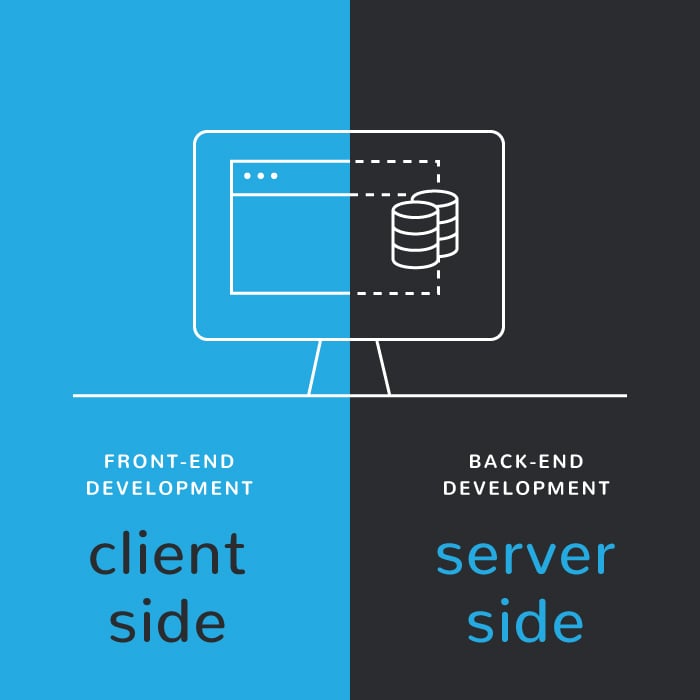In the growing world of software and web development, the demand for coding-proficient programmers is always on the rise. Of course, as the tech industry grows, so does the number of programming languages.
And while most programming languages can be used for most (if not all) development tasks, each language offers specialized functionality that makes it better suited for individual use cases.
Unfortunately, learning a programming language takes time, which means that software engineers have to pick and choose when it comes to what languages they’re going to be focusing on.
And that can be a very difficult decision.
But don’t worry! We’ve compiled this handy list of programming languages that are in-demand across the tech industry, so you’ll know where you should be directing your studies while you train up. We’ll also include a list of other coding languages so that you can get an idea of what else is out there and what other options you have when it comes to completing more specialized tasks.
Let’s Start with the Languages That Are Likely to Give You a Leg up in Your Programming Career
- HTML and CSS
- Python
- Java
- JavaScript
- Swift
- C++
- C#
- R
- Golang (Go)
HTML and CSS

Yes, we’re beginning this list by combining two different programming languages (more precisely Markup languages) under a single header. That’s because while HTML and CSS certainly aren’t the same thing, they are complementary languages that function best when used in tandem — so learning them both is a great place to start. HTML and CSS are commonly used in web development. HTML (HyperText Markup Language) dictates the content and structure of a webpage, while CSS (Cascading Style Sheets) modifies the overall visual design and aesthetic of the HTML elements. Both are extremely useful when creating webpages and both make a great introduction to coding.
Python

Python is one of the most widely used programming languages in the world. This is, in part, thanks to its versatility. Python is considered a multi-paradigm coding language, which means that it allows programmers to take different approaches to achieve their goals, including procedural, functional, and object-oriented programming. One thing that really adds to Python’s popularity is its readability. Python emphasizes intuitive syntax, simplifying the coding process overall. Also, Python has a strong support community so if you ever need tips or solutions, a quick trip to Stack Overflow will usually provide the answer.
Java

From server-side applications to Android mobile games, Java is a powerful code that any programmer would benefit from learning. Java’s motto is “write once; run anywhere.” What does that mean? It means that Java is a useful option for cross-platform coding. Java is supported by a robust community and set of tools. If you want to focus on design and structure but don’t want to spend as much time on memory management or system details, then Java may be the right language for you.
JavaScript

In terms of popularity, you really can’t do better than JavaScript. Outpacing even HTML among professional developers, JavaScript is useful for both frontend and backend development. Additionally, JavaScript is also becoming a go-to language for Internet of Things (IoT) development. Along with HTML and CSS, JavaScript is considered a core technology that powers the World Wide Web. In fact, JavaScript is often used as a client-side scripting language written into an HTML page. So, if web development is in your future, JavaScript should be.
Swift

Want to program for Macs? Then Swift is an absolute must. Swift was developed by Apple specifically for use with macOS, iOS, watchOS, and tvOS. And because Apple is such a big player in the mobile device arena, Switch has also become an essential part of the IoT stack. Swift is backed by Apple’s near-limitless resources, so when you work with this language, you’ll have access to libraries and infrastructures that take a lot of the effort out of coding.
C++

Designed to function as a more powerful version of the original C language, C++ (computer programming names are just like that) takes the advantages of C and adds classes. This multi-paradigm language supports procedural, generic, and object-oriented programming, along with data abstraction. C++ is extremely fast and has become a popular choice in applications, gaming, and animation software development.
C#

Made to resemble Java in many respects, C# (pronounced C sharp) is a language designed for developing apps on the Microsoft platform. C# is part of the .Net framework on Windows and is a general-purpose language that is flexible, powerful, and easy to learn. Like C++ , C# is often used in game and app development. Unlike C++, C# is targeted specifically toward the Windows OS, making it less useful as an all-purpose programming language.
R

If statistics and data science are in your future, then R should be as well. Widely used by statisticians and data miners in the creation of statistical and data analysis tools, R has a range of data-focused features. These include clustering, classification, and non-linear modeling. R is generally used for things such as statistical analysis and predictive modeling and is specifically designed to be as intuitive as it is powerful.
Golang

More commonly known as Go, Golang was created by developers at Google and is loosely based on the syntax of the original C language. Go is highly specialized and can be a difficult starting language for new programmers. That said, those with some programming experience who wish to broaden their own skillset may find that Go is actually fairly simple and straightforward… once you get the hang of it. This is because Go only uses 25 keywords. Projects that involve distributed networks, cloud services, and other complex backend technologies may benefit from Go.
Other Coding Languages to Be Aware Of
While the above languages may dominate our list of coding languages, they are by no means the only languages. In fact, there are literally hundreds of coding languages in use throughout the world with more being developed all the time. We’re not saying that you should dive deep into researching all of these languages, but just for the sake of knowing what’s out there, here are several other coding languages you should be aware of, many of which are covered in our companions post 20 Top Programming Languages.
- PHP
- TypeScript
- Scala
- Shell
- PowerShell
- Perl
- Haskell
- Kotlin
- Visual Basic .NET
- SQL
- Delphi
- MATLAB
- Groovy
- Lua
- Rust
- Ruby
- C
- Dart
- DM
The Well-Rounded Programmer
At the end of the day, programming languages are just sets of specific rules that allow us to instruct computers to perform tasks. But while a programmer can always focus their study on mastering one language, those that broaden their horizons by learning a range of languages are usually better prepared for careers in software engineering (and related fields).
That said, no programmer will ever be able to master every programming language that’s out there. That’s why it’s important to be familiar with your options. If you know what languages perform best in what circumstances and you know what kinds of problems you’ll be working to solve, then choosing the right coding language (or languages) becomes much simpler.
After all, the tech world is growing. And for those who want to secure a place in it, growing their repertoire of programming languages can be a rewarding move. Just remember, starting somewhere is better than not starting at all.









